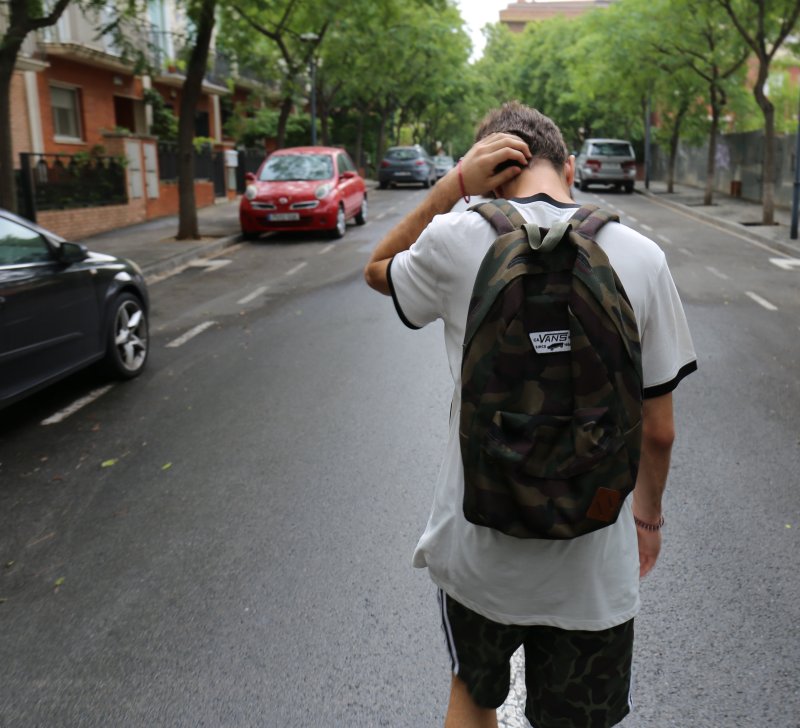Study: COVID-19 survivors at higher risk for mental health problems up to year later
A new research has linked COVID-19 with extensive-term psychological health complications. Picture by Jesús Rodríguez/Unsplash
Feb. 16 (UPI) — Individuals have had COVID-19 are at larger threat for mental health troubles, such as stress and anxiety, despair, drug and alcohol use ailments and rest disturbances, a research published Wednesday by the BMJ discovered.
COVID-19 survivors have been 60% much more likely to suffer from mental wellness troubles than those who had been not contaminated, the knowledge confirmed.
This led to an enhanced use of prescription medicine to address these complications and better danger for material use ailments, which includes those people involving prescription opioid agony drugs, alcohol and illicit medicines, the researchers explained.
These problems arose inside a yr just after recovery from the virus in people who had major as effectively as moderate bacterial infections, according to the scientists.
“Though we’ve all suffered during the pandemic, people today who have had COVID-19 fare far even worse mentally,” examine co-creator Dr. Ziyad Al-Aly stated in a push launch.
“We need to admit this fact and handle these problems now just before they balloon into a a great deal bigger psychological overall health disaster,” reported Al-Aly, a clinical epidemiologist at Washington College Faculty of Drugs in St. Louis.
The results are dependent on examination of psychological health and fitness information and facts of almost 154,000 grown ups who tested constructive for COVID-19 in between March 2020 and January 2021, and have been treated in the U.S. Office of Veterans Affairs healthcare method, the researchers said.
Statistical modeling was employed to examine psychological wellbeing diagnoses in the COVID-19 inhabitants with two other groups of a lot more than 11.4 million people not infected with the virus, according to the researchers.
They in contrast the traits viewed in this population with people observed in additional than 72,000 flu clients, practically 12,000 of whom ended up hospitalized with the seasonal virus, they stated.
The bulk of examine individuals ended up older White males, although there had been a lot more than 1.3 million females and much more than 2.1 million Black people today included, the scientists reported.
As opposed to individuals devoid of any bacterial infections, people who experienced COVID-19 had been 35% far more probably to suffer from panic disorders and approximately 40% extra very likely to expertise despair or tension-relevant disorders, the information showed.
This coincided with a 55% boost in the use of antidepressants and a 65% expansion in the use of medicines to treat anxiousness, the scientists stated.
Similarly, people today who experienced survived COVID-19 have been 41% additional possible to establish rest diseases and 80% additional most likely to knowledge declines in brain purpose, like memory and focus troubles, in accordance to the researchers.
In contrast with people devoid of COVID-19, those people infected with the virus had been 34% much more most likely to build opioid use problems and 20% a lot more probable to acquire non-opioid substance use disorders involving alcohol or illegal medication, the information showed.
They also experienced a 46% better threat for getting suicidal thoughts, the scientists reported.
Those people hospitalized with COVID-19 ended up 86% extra probable to be identified with a mental wellbeing problem subsequent restoration, they said.
Prior reports have advised that a person in three people today who survive COVID-19 are diagnosed with a psychological overall health problem in six months of restoration, when other individuals have observed back links involving the virus and prolonged-term sleep and tiredness challenges.
In addition, “brain fog,” or troubles concentrating, is a typical symptom of COVID-19, investigation implies.
“Our results recommend a unique website link involving [COVID-19] and psychological wellness disorders,” Al-Aly stated.
“Urgent consideration is necessary to establish and treat COVID-19 survivors with mental health conditions,” he stated.






